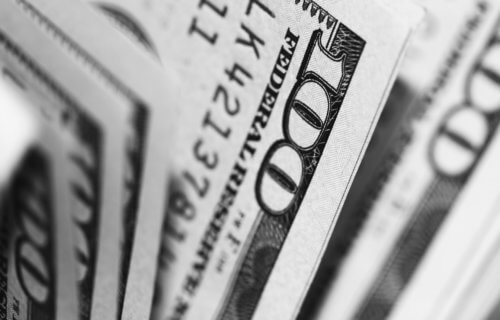WASHINGTON — Does money really buy you happiness? A new study finds it might, but it probably won’t change how you feel about other people. Researchers from Singapore and the United States say people who earn big money feel better about themselves, but their cash doesn’t make them care more about others.
Study authors explain that how much money a person makes can determine whether they feel good or bad about themselves. These feelings are called positive or negative self-regard emotions. Those who bring home the bacon are likely to experience positive emotions, including confidence, pride, and determination. Others, who struggle to make ends meet, tend to experience negative emotions like sadness, fear, and shame.
A person’s feelings towards others like love, anger, and compassion, however, are not altered by money, the researchers say.
“The effects of income on our emotional well-being should not be underestimated,” says study author Dr. Eddie Tong, an associate professor at the National University of Singapore, in a media release from the American Psychological Association.
“Having more money can inspire confidence and determination while earning less is associated with gloom and anxiety.”
Researchers analyzed data from a survey carried out in 162 countries, involving 1.6 million people. They discovered that whether a person lives in America or a developing country their relationship with money did not change. People who earned more felt more confident, proud, and determined in comparison to others.
Compassion and money don’t mix?
The survey also examined emotions people feel towards others, such as gratitude and love. Unlike self-regard emotions, these do not appear to have a connection to a person’s income, the researchers reports.
“Having more money doesn’t necessarily make a person more compassionate and grateful, and greater wealth may not contribute to building a more caring and tolerant society,” Dr. Tong explains.
Study authors also analyzed the long-term effects of income on a person’s emotions. In a survey involving 4,000 participants from the U.S., the team discovered making more money predicted higher levels of self-regard emotions — even 10 years after the survey. Likewise, earning less continued to predict more feelings of fear and shame a decade later.
According to the U.S. Census Bureau, the average household income in 2019 was $68,703. That was an increase of nearly seven percent from the previous year. Currently policymakers are pushing to raise the federal minimum wage to $15 an hour, which is already the law in some states.
“Policies aimed at raising the income of the average person and boosting the economy may contribute to emotional well-being for individuals,” Dr. Tong concludes. “However, it may not necessarily contribute to emotional experiences that are important for communal harmony.”
The findings appear online in the journal Emotion.
SWNS writer Tom Campbell contributed to this report.
